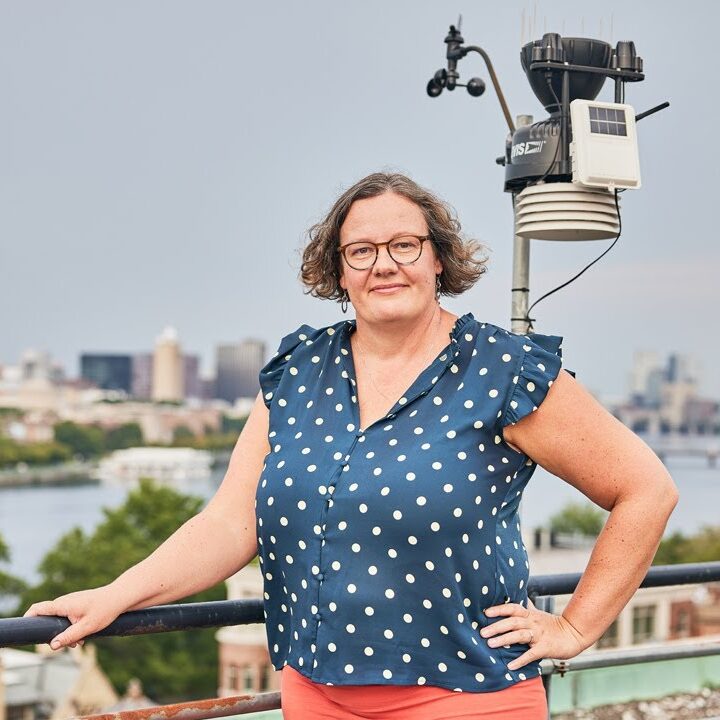CISE Affiliate Lucy Hutyra Named MacArthur Fellow

![]() Earth and Environment Department professor and CISE Affiliate Lucy Hutyra was recently named a 2023 MacArthur Fellow, among the most prestigious awards for various fields, including science, research, art, and writing.
Earth and Environment Department professor and CISE Affiliate Lucy Hutyra was recently named a 2023 MacArthur Fellow, among the most prestigious awards for various fields, including science, research, art, and writing.
Hutyra and her Research Lab focus on carbon dynamics in forests and cities and study forest ecology, urban nitrogen, and carbon cycles. Through information about the atmosphere, climate, and biometrics, she studies the drivers behind the atmosphere and biosphere carbon exchange.
In addition to leading her lab, Hutyra is the director of the BU Biogeoscience Program and the BU URBAN Program. Her research focuses on understanding the relationship between humans and ecosystems in five different facets. Recently, she was a part of a research paper titled “Soils at the Temperate Forest Edge: An investigation of soil characteristics and carbon dynamics.” This paper is just one example of Hutyra’s research on the soil and carbon environments in forests.
Each year, the John D. and Catherine T. MacArthur Foundation names 20 fellows who are intellectual, scientific, and artistic achievement leaders. The fellowship also carries an $800,000 stipend over the next five years. The stipend is given to continue to fuel the endeavors of each fellow. One of the most exciting aspects of the MacArthur Fellows program is that the recipient usually does not know they are receiving or even being considered for the fellowship until they receive the call telling them they are the newest MacArthur Fellow.
Hutyra’s work, while creative and intellectual, is necessary. From the recent international events, including the fires in Lahaina, Hawaii, and Canada, to an extraordinarily rainy summer in New England, the effects of climate change have never been more visible. Professor Hutrya’s work aims to address these issues, along with many more, concerning the environment and climate change.
At BU, Professor Hutyra teaches classes on Urban Ecology and Terrestrial Ecosystems & the Carbon Cycle.
More information can be found about Professor Hutyra and her lab here.